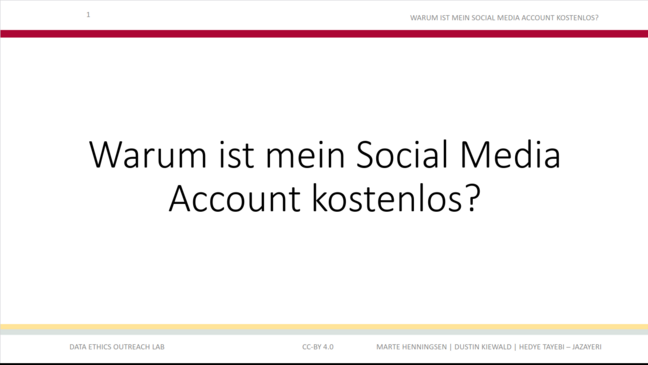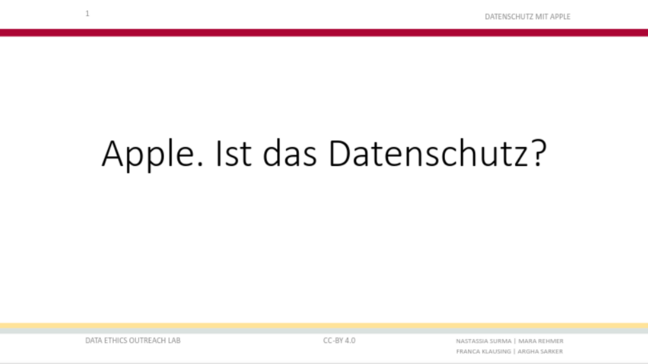Data Ethics Outreach Lab
In the Data Ethics Outreach Lab (DEOL), we develop innovative transfer formats that bring scientific research on data protection, data ethics and the critical philosophy of digitalization into public debates and educational work. Our current focus is on the development of learning formats for school lessons. We are also involving students at the Institute of Cognitive Science as part of a study project.
The project is funded by the "zukunft.niedersachsen" program of the Ministry of Science and Culture, Lower Saxony."
Study project and interdisciplinary course for Master's students of cognitive science
Osnabrück University, summer semester 2022 - winter semester 2024/25
Current course: Wednesdays 14-17, Room: 50-316 (Institute of Cognitive Science, Wachsbleiche)
Prof. Dr. Rainer Mühlhoff, Jan Siebold and Annemarie Witschas
If you have any questions, please send us an email
Description of the course
How does the data collected by Instagram and YouTube promote social inequality? How are social relationships (re)structured by Snapchat, TikTok and co. and how are the opportunities for young people to assume and perform identities online restricted? What does PayPal do with the data it collects from money transfers? How much does Spotify know about its users? Why do chatbots reinforce stereotypical gender roles? And what does my missing bus ticket have to do with me being refused credit?
These are just a handful of possible points of view from which central topics of digital consumer culture can be critically examined. Many of these points have to do with big data and the AI services we use every day. In most cases, users have no awareness of the negative impact on our society, democracy and well-being.
In this study project, we want to discuss the risks and societal impacts of connected digital services and find ways and formats to raise public awareness of these issues. The participants will work in small groups on different topics - depending on which technology fields and problem areas seem most important to them. These topics will then be implemented through the development and use of open-source educational resources such as teaching materials for use in secondary schools, organization of workshops (teacher training), production of explanatory videos for publication on the Internet or similar interventions in public space.
Participation
The course is aimed at Master's students in Cognitive Science who can participate in one of two modes:
- study project (2 semesters, 6 hrs/week, 12 ECTS points)
- interdisciplinary course (1 semester, 4 hrs/week, 6 ECTS points)
Master's students for Teacher Education are also welcome to participate in this course. Accreditation at the UOS is possible as part of the KCL module "Media Education and Media Socialization" (1 semester, 4 hrs/week, 4-6 ECTS points). There are 10 places for teacher training students.
We also have places for students from other disciplines and other institutions. In this case, please send us a message.
Format
The project is run in English. However, the course is mostly conducted in small project groups, which can also work in German (especially if you want to develop teaching materials for German schools). Students who do not live in Osnabrück can also participate online(hybrid course) - although it is practical for project teams if everyone works either in person or online.
Learning materials for school lessons (Open Educational Resources, OERs)
Our learning materials are published on the learning platform https://www.twillo.de/.

